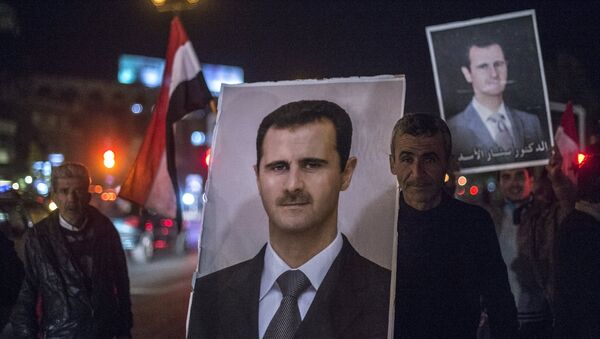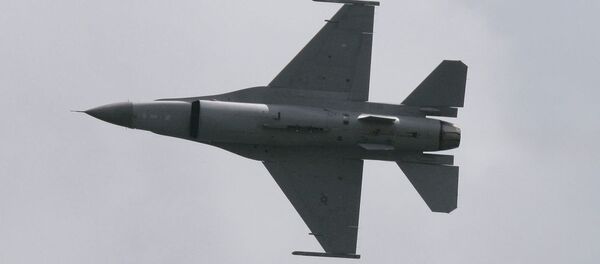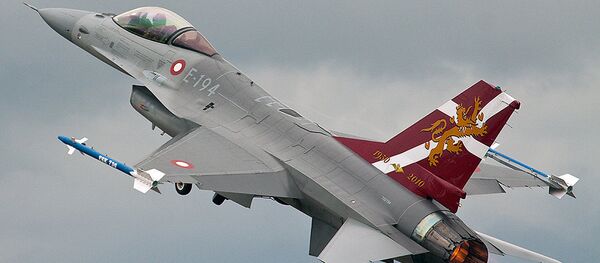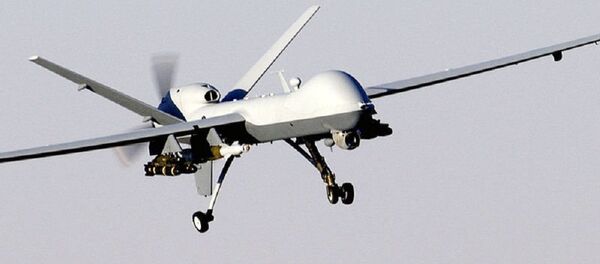"Moscow's willingness to engage Secretary of State John Kerry's push for a diplomatic process was grounded in the Kremlin's assumption that, perhaps the United States was taking its first gingerly steps down the same road as Turkey's President Recep Tayyip Erdogan: the grudging recognition that Bashar al-Assad was no longer the primary threat in the Syria conflict," analyst Nikolas K. Gvosdev wrote for the National Interest.
Policymakers in the US have long called on Assad to resign, claiming that he was the key stumbling block on the way to peace in Syria. In addition, Washington is believed to have provided assistance to groups trying to overthrow the government in Damascus.
The incoming Jerome E. Levy Chair of Economic Geography and National Security at the US Naval War College added that Russian Foreign Minister Sergei Lavrov and his team operated on this assumption.
Although Russian and American diplomats reached the breakthrough agreement on Syria on September 9, many in the US have not been happy with the deal that, if fully implemented, will see an unprecedented level of military cooperation between Moscow and Washington.
This is why when US-led coalition warplanes launched airstrikes against the Syrian Arab Army instead of Daesh in Deir ez-Zor, the Russians were "prepared to assume the worst," as Gvosdev put it.
"Some suggest that it may be payback for Russian strikes earlier this year on Syrian opposition forces trained and equipped by the United States," the analyst noted. "Beyond that, however, it is interpreted by many on the Russian side as a loud-and-clear signal that the US still sees Assad as the principal problem and does not want his forces to be strengthened during the period of the ceasefire."
On September 13, four days after the Lavrov-Kerry deal was unveiled, John Kirby, a spokesperson of the US State Department, said that the US has not changed its policy on Syria, in other words that the White House was not ready to work with Assad. In fact, Kirby said that there will be no coordination with the current Syrian government when it comes to counterterrorism at all.
"There's been no cooperation with Assad and there’s not going to be cooperation with Assad," he said, adding that "we have been nothing but clear about Assad's illegitimacy."
Three days later, Kirby reaffirmed that the US "will continue to support the – those moderate opposition forces – those moderate forces, I should say, because they're not – it's not just about opposition – it's not really about the opposition to Assad, it's about the fight against Daesh."
Experts have pointed out that the US-led coalition's bombing of the SAA base in the city of Deir ez-Zor has helped Daesh to advance on Damascus-led forces, possibly weakening the latter.
"What this [airstrike] has achieved essentially is giving [Daesh] the upper hand once again. They were surrounded, they were considerably weakened as a result of Syrian and Russian efforts," political analyst and commentator on Middle Eastern affairs, Hafsa Kara-Mustapha told Radio Sputnik.
The analyst further said that "the complicity between [Daesh] and the US administration is becoming far more obvious to all. It was dismissed as conspiracy two-three years ago. It is now becoming very obvious that [Daesh's] interests and US interests converge."
Kara-Mustapha also suggested that the Obama administration "does not want to see the sovereignty of Syria respected. It does not want to see the official government of Syria remain and it does want to see [Daesh] take over not only Syria but pretty much the best part of the Levant."




